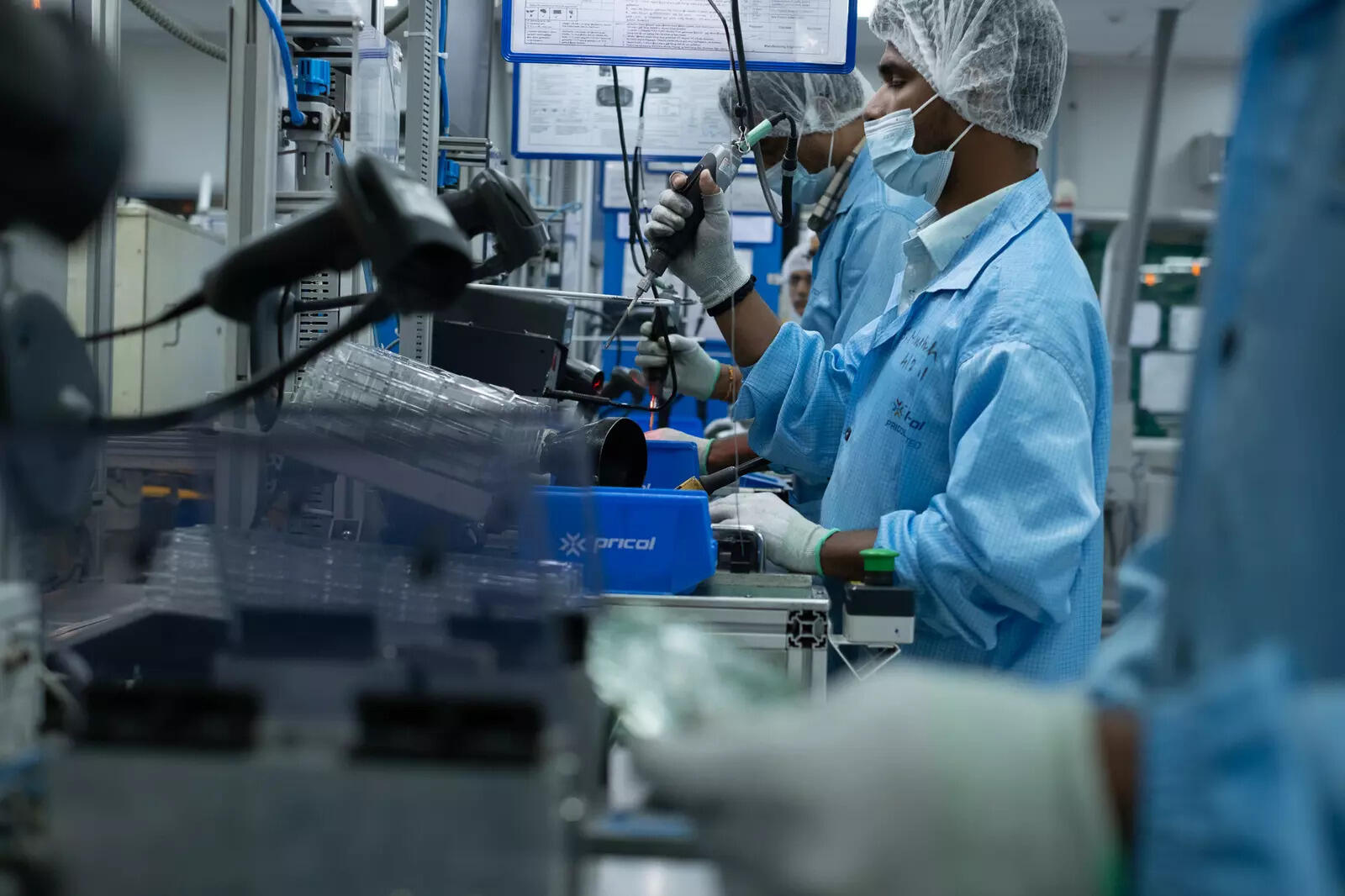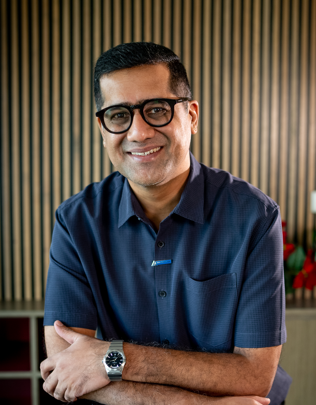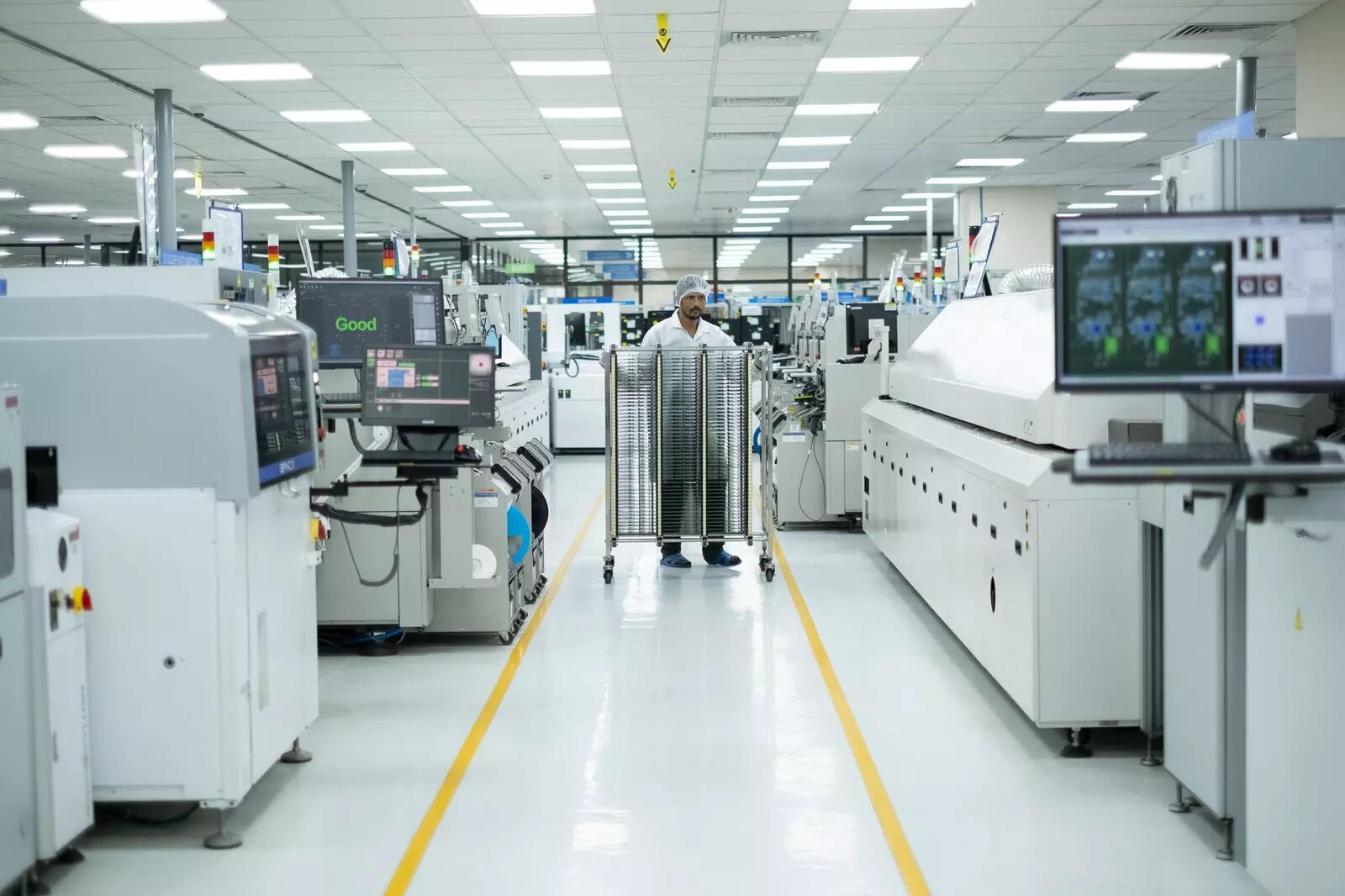
Coimbatore-based Pricol has drawn up aggressive growth plans over the next five years which will see its turnover jump substantially by calendar 2030.
According to Vikram Mohan, Managing Director, this target should be comfortably achieved while primarily “riding the wave of India” and the signifiant orders the auto component maker has won. “Over the next three years, we know pretty much how much business we have,” he told ET Auto.
With 14 plants in India and one in Indonesia, Pricol specialises in driver information and connected vehicle solutions, actuation, control and fluid management systems as well as precision products.
Now into its 50th year of operations, the company has planned some key investments which include a state-of-the-art facility coming up in Pune, a “completely refreshed plant” being commissioned in Manesar as well as one in Bhiwadi where land has been bought. Plans are also on to buy land in Aurangabad for a new facility as well as in Hosur and Mysore to set up units.

“All these will be funded by internal accruals for the largest part,” said Mohan. Beyond this, the debt-free Pricol will also focus on growing its recent ₹215 crore acquisition of Sundaram Auto Components (now renamed Pricol Precision Products) which was done with “almost next to no debt” and using internally generated cash.
“We do complex plastics, we have a tool room, and that is how we ended up with Sundaram when they looked at divesting. This has been a beautiful story,” said Mohan. The Pricol team knew that the key areas to look at were people, process and product.
Centre of excellence
The other aspect was to “bring our DNA into that company” of becoming a technology entity. “So why don’t we become a technology company in plastics and become a full system solutions provider rather than a component provider?” was the thinking. Pricol is now setting up a centre of excellence in polymer technology not too far from its main plant in Coimbatore.
This will include a design centre, complete environment labs, endurance labs, and a tool room as part of the endeavour to invest in technology, go up the value chain and boost turnover in that business. “So that is what we are working towards,” he said.
Beyond India, Pricol is working out a strategy for Southeast Asia and Mexico. “These are the two largest markets after India for organised two-wheelers and it is logical for us to expand here,” explained Mohan. A scooter or motorcycle launched in India generally finds its way into Mexico, Indonesia, Vietnam and the Philippines 3-5 years later.
In the commuter bike segment, the “finest technology is coming out of India today” and then filtering down to the other markets. “Let’s have a India plus one strategy for Pricol which is going to be Southeast Asia and Mexico,” he added. Right now, research is underway to check if this makes sense for the company and a final decision is expected shortly.
Reaching out to more 2-wheeler players
With the company now becoming a major supplier to Honda in India, there is more reason now to work out a global strategy for the Japanese two-wheeler maker. The acquisition of Sundaram Auto Components has also paved the way for easier access to other two-wheeler companies which was not the case earlier when it was part of the TVS Motor fold and the competition overhang was a clear obstacle.
From Mohan’s point of view, it is not just great to have a fantastic product but a fantastic process to manufacture that product which is why “we started investing in our process engineering”. There are 80 to 100 manufacturing engineers who are designing processes and the company is now able to deliver a product at “a cost meeting design-to-cost, design on time and design for manufacturability”.
This is the “triangular mantra” that he keeps reiterating to the engineers working at Pricol. By the end of the day, there is no point designing a product, that is going to be relevant for today, two years later. Likewise, “you can’t have a product that is great on design but not manufacturable”. This, according to the MD, is a “beautiful synergy” that has been created.
What we are making today is no different from the smartphone except it comprises different pieces of hardware and software.Vikram Mohan
“So which is why I am saying we are going to become more and more of a technology company to be staying ahead of the curve, at least for driver information systems,” said Mohan. The actuators, fluid management systems and plastics will continue to be manufacturing companies where “we will go up the value chain to be more value-added systems and solutions provider”.
In plastics, the goal is to move up the value chain through the new centre of excellence for polymer technology. In the actuation control and fluid management systems vertical, the company has got into disc brakes and commercial production has started this year where it “will take off and start building up some steam”.
Changing dynamics in human machine interface
Two-wheeler manufacturers today are seeking “lesser and lesser” suppliers and are yet keen on having a very strong (supplier) base in place. When it comes to the human-machine interface, or HMI, in a two-wheeler, it is largely present in the throttle, switch and brake. The thought process at Pricol is to now go into the entire handlebar assembly, put in all the electronics and auto electricals that come in there and then become the aggregate.
As Mohan put it, the HMI in the vehicle has become the driver information system. Users want to see the same screen as they see on their cellphones and mirror this. “What we are making today is no different from the smartphone except it comprises different pieces of hardware and software,” he said. The hardware and everything that “we are putting into this” is far more of a different grade because it has to pass the test in pelting rain, snow or dust.

In passenger cars, even while 65 out of 100 Tata cars are coming with the Pricol driver information system with other companies likely to come onboard, this will still not be a very significant part of the business. “The battlegrounds we have chosen to fight on are two-wheelers and commercial vehicles where we are having a numero uno position and want to continue to defend that,” said Mohan.
According to him, it was important for the company to keep strategising instead of insisting that “this is the only road I am going to go”. Likewise, taking quick decisions and moving in the right direction would ensure greater relevance especially in an arena of “so many uncertainties” where “you have to keep on your toes and keep evolving every day”.
Keeping a playbook handy
In Mohan’s view, having a playbook in place for the worst scenarios, like the ongoing rare earth magnet crisis for instance, was critical because “when you are expecting a failure, plan for the worst so that you always perform better and are able to handle it”. Having said that, he maintained that India was in a sweet spot right now worldwide in terms of good growth rates along with a very stable political and economical climate.
“It is a consumption, and not saving, economy and the GST cut is the icing on the cake especially for the two-wheeler segment that we are in. Over the next 10 years, there is a lot of value to be created in India,” said Mohan. The most important thing to do now was to keep focusing on technology since that is where “we have always been lagging in India”.
He said he had a very simple mantra when it came to adopting any technology. “Adapt it to meet your needs. Improve it to give value to your customers. Don’t just blindly copy. Improve it to create value.”
China continues to be the monarch of all it surveys and the Pricol MD said that where earlier the benchmark was German and Japanese companies, China had overtaken both. “We went to this factory in China which was like in the middle of nowhere in a godforsaken town. What a fabulous driver information system business they had!” he exclaimed.
